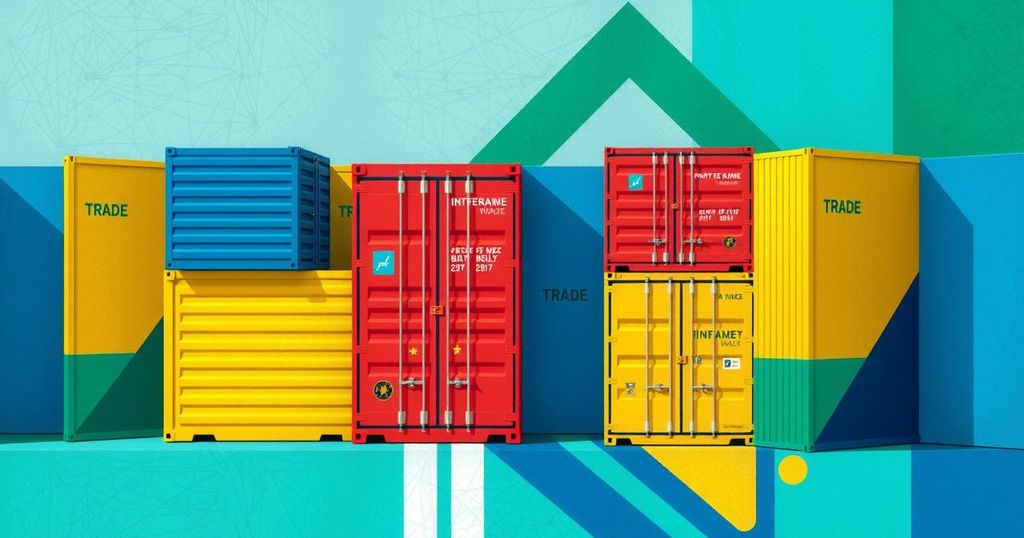China’s DeepSeek: A Game Changer in the A.I. Race Against the U.S.
DeepSeek, a Chinese start-up, has developed AI technology reportedly more efficient than its U.S. counterparts, prompting a surge of nationalist pride in China. The company’s advancements may shift the U.S.-China tech rivalry, as experts highlight the efficiencies and innovations of Chinese engineering. CEO Liang Wenfeng believes that China’s setbacks may lead to deeper innovation, but concerns about government control and censorship persist in the tech sector.
Social media within China has erupted in celebration following reports that the start-up DeepSeek has developed an artificial intelligence tool outperforming U.S. counterparts in efficiency and cost. This development is perceived as a significant milestone in the ongoing technological rivalry with the United States, heralding a potential turning point for China’s tech industry amidst its current economic struggles. The markets reacted negatively, with DeepSeek’s advancements unsettling Silicon Valley investors and analysts.
The sentiment in China reflects a surge of national pride, and influential figures such as Hu Xijin have suggested that U.S. technological sanctions have inadvertently spurred Chinese innovation. High engagement on platforms like Weibo highlights the public’s enthusiasm for DeepSeek, with users urging support for the company and its CEO, Liang Wenfeng. Many now question the U.S.’s technological primacy and foresee a potential shift in global AI leadership.
Several experts assert that DeepSeek’s approach, utilizing fewer Nvidia chips than its American counterparts, demonstrates the efficacy of Chinese engineering in AI development. Moreover, the initiative by DeepSeek is often contrasted with the more resource-intensive models of American firms such as OpenAI, further emphasizing the competitive edge of Chinese startups. The recent advancements illustrate a growing belief in China’s capacity for innovation in technology.
Mr. Liang, who founded DeepSeek in 2023, believes the ability to innovate stems from a willingness to take risks. He recognizes the potential of China’s tech sector to contribute significantly rather than merely follow Western developments, especially during a phase marked by economic adjustments. The focus is shifting from mere financial gain towards meaningful technological breakthroughs.
DeepSeek’s staffing strategy, favoring young and less experienced graduates from Chinese universities, also reflects a shift in talent perception within the industry. Liang expressed optimism about the future tech talent landscape in China, suggesting that the country has the potential to cultivate elite engineers domestically. This assertion is resounding on social media, where the accomplishments of DeepSeek’s employees are celebrated.
Despite this optimism, the relationship between the company and the government remains complex. With historical crackdowns on the tech sector, there is concern among executives that state intervention could limit DeepSeek’s development. Although the government aims to bolster national technological independence, heavy oversight remains a compelling worry for entrepreneurs and investors alike.
The debate around DeepSeek’s effectiveness raises questions about limitations imposed by Chinese censorship, which affect the topics that their models can address. Users have reported instances of content restrictions, suggesting that while innovations exist, they may still operate within a constrained framework shaped by governmental policies. The juxtaposition of their achievements with these restrictions underscores the challenges facing the company as it seeks to become a cornerstone of the AI landscape.
China’s technological landscape is evolving rapidly, driven by increasing national investment in artificial intelligence. The rise of companies like DeepSeek illustrates a new attitude towards innovation within a struggling economy, where homegrown talent and technological advancements are becoming focal points of national pride. As the global tech rivalry escalates, China’s efforts underline its ambitions to elevate its status from a follower to a leader in the AI sector, challenging prior assumptions about U.S. dominance in technology.
DeepSeek’s emergence symbolizes a pivotal moment for China’s tech industry, showcasing its ability to compete on the global stage. The narrative surrounding this start-up not only fuels nationalistic pride but also raises critical discussions about the future of U.S.-China relations in technology. While there is hope for innovation, concerns remain regarding state control and censorship, suggesting that the pathways to success will require navigating significant obstacles.
Original Source: www.nytimes.com








Post Comment